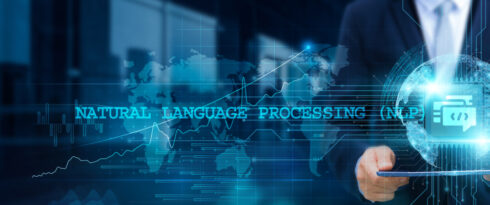
The milestones of modern technology – part 2
Let us take you on a technology journey once again. This week, we’ll focus on more recent inventions that changed our perception of the way we live, work, and see the future.
If you wish to experience years 1950- 1999, discover the milestones of technology, part 1.
2001 – the launch of Wikipedia
The popular online encyclopaedia came into existence at the beginning of 21st century. To this day, it remains the most frequently used. Wikipedia has been designed in such a way to strengthen collaboration between internet users, since everybody can and edit its entries. It has been developed and invented by Jimmy Wales and Larry Sanger.
2004 – Web 2.0
In 2004, the ‘World Wide Web’ became more open. The term ‘Web 2.0’, first coined by O’Reilly Media, stands for applications that engage users, and are based on content created by them. This can be blogs, video sharing services like YouTube, and of course social media like Facebook or MySpace. They all promoted collaboration and delivery of fresh content.
2005 – Google Maps
Even though GPS devices came on the market around 2000, they were quite expensive. It all changed in 2005, when Google released their online maps platform. From its beginnings, Google Maps revolutionised the way people travel, especially because it was (and remains to this day) free, and could guide you to your destinations by any means of transport (bus, subway, train, etc.)
2006 – Amazon Elastic Compute Cloud
Storing large amounts of information has never been so easy. Amazon Elastic Compute Cloud (Amazon EC2) is a service providing additional space outside of companys’ servers. This solution is reliable and scalable – it works as a pay-as-you-go service which means you pay only for the used space. After more than a decade, it is even more popular and widely used nowadays.
2008 – Bitcoin
Bitcoin currency was introduced to the market by an anonymous person. At the beginning, obtaining Bitcoins was considered a gimmick, and was believed to be a passing fad. Yet, right now, it has become a valid currency, attracting ever more users and investors. What is more, in 2013 Bitcoin was worth more than an ounce of gold and each day people mine up to 3,600 Bitcoins.
2010 – Watson’s Jeopardy! victory
Winning a popular TV show has truly marked the future for Watson computer, since a few years before that it could only answer 15% of Jeopardy! questions. It took its creators a few years to ‘teach’ the machine to be the smartest one out there. It was filled with 4TB of information and managed to beat the most powerful Jeopardy! contestants.
2012 – Google Glass
Google Glass can be a synonym of a revolution, since it completely changed the perception of technology. Suddenly, everybody could enter a sci-fi reality where they could check e-mails, make phones calls, etc. using their eyes. The glasses themselves had a futuristic vibe which wasn’t everybody’s cup-of-tea. Even though they did not become a commercial success, they cleared the path for various Augmented Reality projects.
2012 – Raspberry Pi
The smallest and cheapest computer on the market. Yes, it is the definition of Raspberry Pi. It has been designed in the UK and is basically a single-board computer, meant to be functional and affordable, priced at only $35. Its initial aim was to popularise the teaching of computer science at schools. However, in time it also attracted numerous hobbyists, who used it to build their projects.
2015 – Personal Assistant – Amazon Alexa
Alexa is an integral part of the Amazon Echo and the Amazon Echo Dot devices. It is capable of interaction with its ‘owner’ and works based on voice commands. It can set you an alarm, order a pizza, check the traffic situation in real time, and more. It can also connect to other smart devices around and sync with them, providing you with a feeling of an almost smart house. In time, it learns your routines, thanks to machine learning techniques.
Right now, the technology develops faster than ever. Inventions are smarter and easier to use and, most importantly, available to the public. It is almost impossible to predict what is in stock for us in the future but technology will most definitely make it more exciting.



